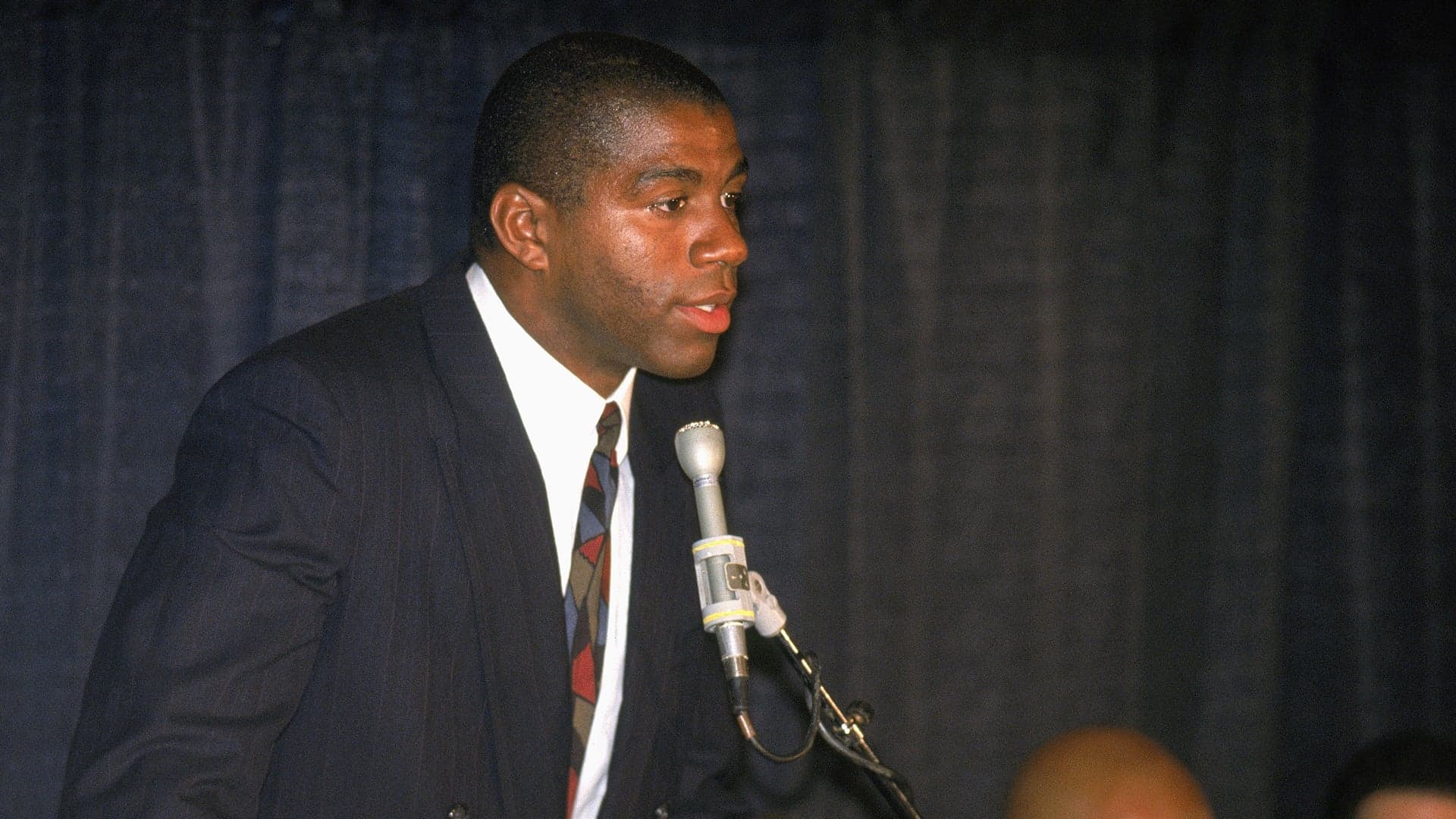On November 7, 1991, basketball legend Earvin “Magic” Johnson stuns the world by announcing his sudden retirement from the Los Angeles Lakers, after testing positive for HIV, the virus that causes AIDS. At the time, many Americans viewed AIDS as solely a gay white man’s disease. Johnson, who is Black and identifies as heterosexual, was one of the first sports stars to go public about his HIV-positive status.
Revered as one of the greatest basketball players of all time, Johnson spent his entire 13-season NBA career with the Lakers, helping them to win five championships in the 1980s. The 6’9″ point guard, a native of Lansing, Michigan, was famous for his extraordinary passing skills, contagious smile and love of the game. In 1981, he signed a 25-year deal with the Lakers for $25 million, one of the NBA’s first over-the-top contracts.
Johnson, a three-time NBA “Most Valuable Player” and 12-time All-Star team member, didn’t completely hang up his basketball shoes after announcing his retirement in 1991. He was voted most valuable player of the 1992 NBA All-Star Game and played on the Olympic “Dream Team” (alongside Michael Jordan, Larry Bird and Patrick Ewing) that won gold for the U.S. in Barcelona that summer. He briefly returned to the Lakers for the 1993-94 season as head coach and made a short-lived comeback as a Lakers player in the 1995-96 season.
Today, Johnson is a prominent spokesman for AIDS awareness and a successful businessman, earning millions from a range of ventures, including movie theaters and restaurants. He serves as an example of how a variety of drug treatments have transformed AIDS from a death sentence into a manageable condition for many people in the U.S. and around the world.
READ MORE: How AIDS Remained an Unspoken—But Deadly—Epidemic for Years

